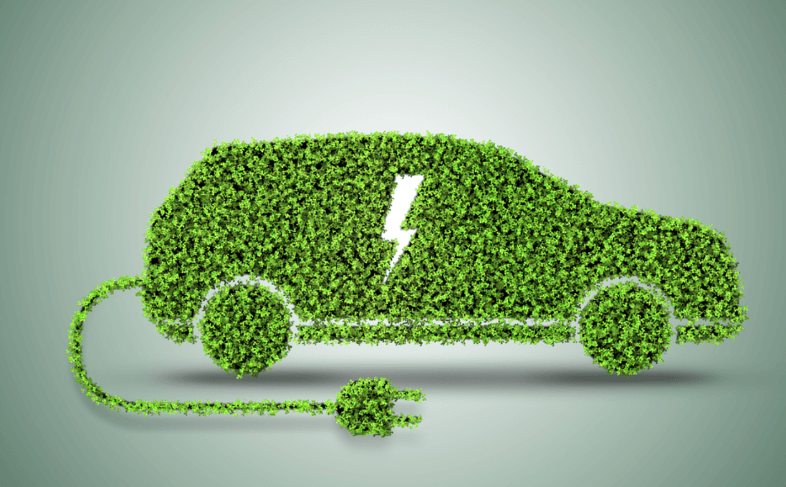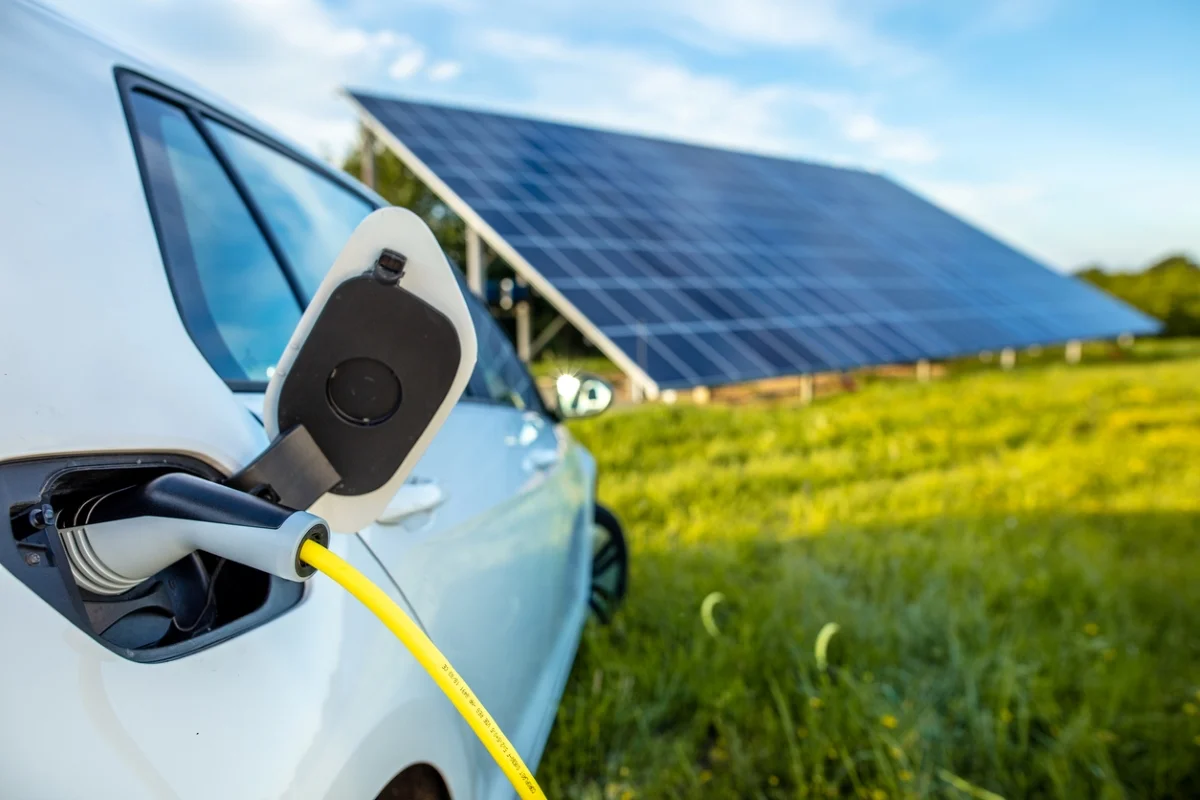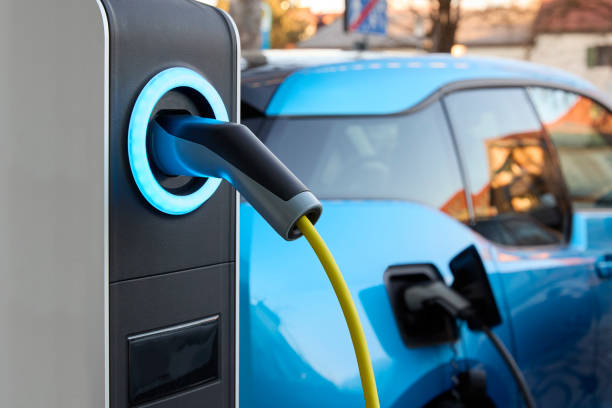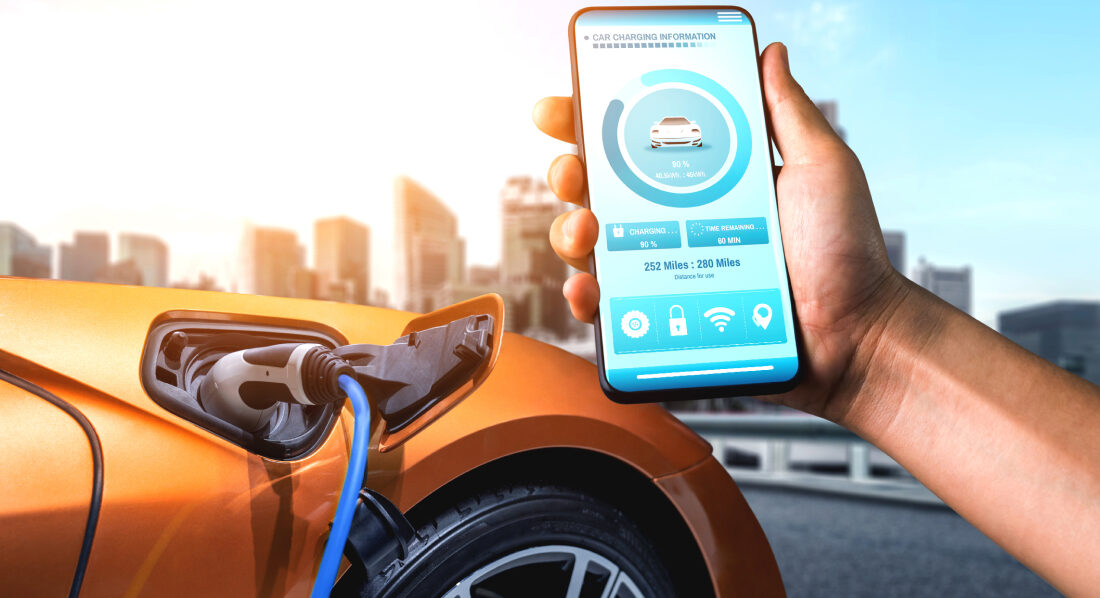- Most recent EV charger models are solar compatible
- Between 8–12 solar panels should be enough to fully power an electric vehicle
- Solar panels are rarely used to fully power an EV, but they can top up its charge
Upon covering the installation expenses for an electric charger, the subsequent consideration involves the cost of electricity required to charge your car.
This expense can be minimized by incorporating solar panels, resulting in a reduced carbon footprint and increased savings.
However, it’s essential to be aware of various considerations before opting for solar panels to charge your electric vehicle, including the fact that not all electric vehicle chargers are compatible with solar technology.
This article will delineate the process of charging an electric vehicle with solar panels. Additionally, we will explore associated costs, identify companies offering solar-compatible EV chargers, and assess the advantages and disadvantages of solar EV charging.
Before connecting solar panels to an electric vehicle, acquiring a home EV charger is a prerequisite. To expedite the purchase, you can utilize our quote form. Upon receiving your details, we will forward them to our suppliers, who will provide you with their most competitive prices.
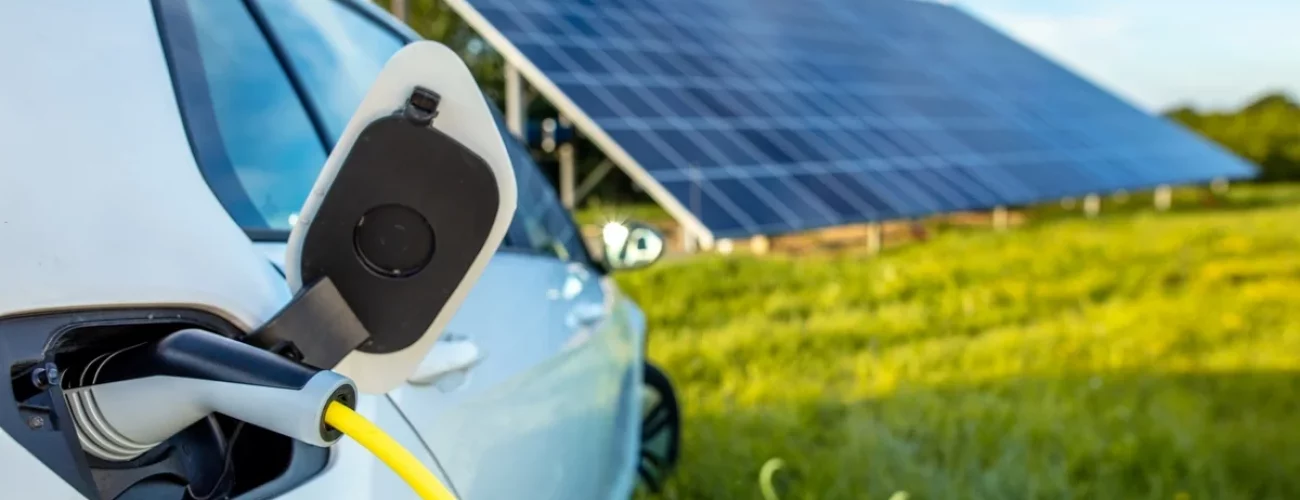
What's on this page?
Can solar panels charge an electric car?
Certainly, solar panels can be utilized to charge your electric car. Nevertheless, for the majority of homeowners, achieving a full charge for their electric vehicles solely through solar energy may prove challenging.
This challenge arises due to a temporal misalignment between when solar panels generate electricity and when most electric vehicle owners typically charge their cars. Solar panels produce electricity during daylight hours when the sun is shining, coinciding with the time when most EV owners utilize their cars. Conversely, the nighttime, when solar panels are inactive, is when the majority of people charge their electric vehicles.
Complicating matters, many EV chargers only commence utilizing solar-generated energy once the household has consumed all the solar electricity it requires. Consequently, in many instances, the EV charger may not have an opportunity to charge the car as the house would have already utilized all the solar energy.
Nonetheless, certain EV chargers are designed to prioritize solar-generated electricity ahead of the household’s needs. These smart chargers often provide homeowners with the option to allocate electricity from the panels to either their house or car through a user-friendly app.
Additionally, it is crucial to ensure that your solar panel system possesses the capacity to generate sufficient power for charging your car, a consideration we will delve into in the following section.
How many solar panels are needed to charge an electric car?
As per Octopus Energy, an array of approximately 8–12 solar panels is typically sufficient to power an electric vehicle. However, this estimate holds true when the solar panels are exclusively dedicated to charging the car, not powering the residence.
In the scenario where you intend to supplement your electric vehicle charging with surplus solar energy generated for your home, achieving a full charge might not be feasible using solar energy alone. It is essential to ensure an ample reserve of solar power for this purpose. Therefore, the more solar electricity allocated for your home, the less likely it becomes to fully charge your electric vehicle using solar energy.
It is crucial to acknowledge that the size of your electric vehicle’s battery directly influences the number of solar panels needed for charging. Hence, it is advisable to discuss this aspect with a solar panel installer before proceeding with the charger installation.
The quantity of panels required for effective electric vehicle charging is also contingent on:
- Local climate: Solar panels generate more energy in sunnier regions compared to areas experiencing frequent cloud cover and rain.
- Solar panel efficiency rating: Theoretically, higher efficiency in solar panels corresponds to increased electricity production.
How long does it take to charge an electric car with solar panels?
Charging an electric car with solar panels typically spans a timeframe ranging from 30 minutes to 12 hours. However, it’s important to note that for most individuals, achieving a full electric vehicle charge solely through solar energy might not be feasible.
The specific duration required for solar-powered electric vehicle charging hinges on factors such as the battery size – larger batteries necessitate more time for replenishment – and the charging point’s speed.
While rapid chargers are not typically installable at home, homeowners have access to relatively swift options, often reaching capacities of up to 7 kilowatts (kW).
Want to compare this to charging an EV without solar panels? Check out our page on How Long Does It Take To Charge An Electric Vehicle?
What’s the cost of solar panels to charge an electric car?
If you want to buy solar panels to charge an electric car, you should expect to pay roughly £7,860 for 10 solar panels, taking up 20m² of roof space.
But bear in mind that the cost of solar panels tends to fluctuate, depending on the type of solar panels you choose, the installer you go for, and your location.
The average UK home typically requires 10 solar panels for power. Depending on your priorities – whether it’s your car or your home – you can utilize this energy for both, albeit not simultaneously.
When considering cost efficiency, powering your home with electricity generated from your solar panels proves to be more economical than using it to charge your car.
Want to learn more about how much solar panels cost up front, as well as how much they can save you? Head to our Solar Panels Cost page.
Should you get a solar battery as well?
Charging your electric vehicle with solar panels during daylight hours eliminates the need for a solar battery. However, if you opt to charge your EV at night, a battery becomes essential.
If your typical home presence is in the evenings, attempting to charge your EV without a solar battery poses challenges since your solar panels can’t capture energy without sunlight.
A solar battery becomes crucial as it stores excess electricity generated during the daytime, enabling you to charge your EV during the evenings.
You can find out everything you need to know about solar batteries on our page: A Beginner’s Guide to Solar Batteries.
Which companies offer solar EV chargers?
Currently, three key companies dominate the market in supplying solar EV chargers: Indra, MyEnergi, and Hypervolt.
**Indra**
– Cost: Starts from £949, including installation (eligible for up to 75% off with the Office for Zero Emission Vehicles (OZEV) grant)
– Charging speed: 7.4 kW
Indra boasts its Smart PRO charger as the “smartest electric vehicle charger available on the market.” This 7.4 kW home charger offers connectivity options via Wi-Fi, 4G, or ethernet, facilitating convenient EV charging with solar power. The Smart PRO charger incorporates the latest safety features, eliminating the need for additional fuses and cables. Notably, users can synchronize it with the Indra app, enabling the creation of regular charging schedules, utilization of a boost function for immediate charging, and the option to track charging in miles, kWh, or monetary units.
**MyEnergi**
– Cost: Starts from £779, including installation (eligible for up to 75% off with the OZEV grant)
– Charging speed: 7 kW
MyEnergi pioneered the development of a groundbreaking solar EV charger with its Zappi charger. This charger can be seamlessly integrated with the MyEnergi app, offering features such as setting timers, optimizing economy tariffs, and employing a boost function for rapid charging. The Zappi charger provides three charging modes:
– Eco charging: Minimizes grid power usage, leveraging cheaper rates overnight or utilizing 100% solar energy.
– Eco charging+: Similar to eco-charging but adjusts charging power in response to solar generation or home power consumption changes.
– Fast charging: Charges the vehicle at maximum power, ensuring a fully charged car in urgent situations.
**Hypervolt**
– Cost: Starts from £660 (eligible for up to 75% off with the OZEV grant); installation cost varies
– Charging speed: 7 kW
The Hypervolt Home 3.0 charger empowers users to monitor their energy consumption, aiding in identifying optimal times for solar energy utilization. To ensure the chargers stay up-to-date, Hypervolt units automatically receive software upgrades. Additionally, enhancing user experience, Hypervolt chargers support voice control via Amazon Alexa, allowing users to check charging status and schedule charging through simple voice commands.
EV Charger advantages
Free or reduced cost of travel
According to NimbleFins, motorists spend an average of £1,288 a year running a petrol car and £1,795 running a diesel car. With solar panels, you can avoid these travel fees.
Harnessing the sun as a cost-free energy source allows you to charge your electric vehicle entirely with solar electricity, offering the prospect of a virtually free charging experience. For many individuals, this has the potential to significantly curtail living expenses, potentially saving hundreds or even thousands of pounds annually, contingent upon their typical mileage.
Comparatively, recharging an electric vehicle with grid energy through a home charger incurs an estimated yearly cost of £727.25 for drivers. This sizable expenditure becomes avoidable with the installation of solar panels.
Essentially, this implies that the investment in solar panels could be recouped in approximately 7.5 years, leaving an additional 18 years or more for substantial savings and returns.
Smaller carbon footprint
Transport accounts for around a quarter of global carbon emissions – and Brits are continuing to contribute to this. The average person in the UK drives 7,400 miles per year, emitting 1.6 tonnes of CO2 per year – the equivalent of three flights from London to New York.
Opting to charge your electric vehicle with renewable energy ensures that you play no part in adding to the emissions burden. In contrast to gas, oil, or coal, solar panels operate without emitting any harmful substances, and electric vehicles don’t produce tailpipe emissions. This dual advantage allows you to enjoy affordable energy while actively diminishing your carbon footprint – truly a win-win situation!
Reduced independence from the grid
Rather than depending on grid electricity to charge your EV, you have the option to produce the electricity autonomously. This not only enables a reduction in your carbon footprint, considering that approximately 40% of the energy mix is still derived from gas, but it also allows you to steer clear of escalating energy expenses.
Increased property value
Utilizing solar panels to charge your vehicle not only provides immediate financial advantages but also results in long-term savings. Furthermore, having an EV charger when selling your property may not only be financially beneficial but could also enhance the property’s value.
After comparing 1,000 house prices across 50 UK areas, one study revealed that homes with an electric charge point installed typically sell for 13% more than the local average.
Next steps
There you have it – comprehensive information on charging your electric vehicle using solar panels. If you’ve already incorporated solar panels into your property, it’s a straightforward decision. Ensure your charging unit aligns with solar panels, and you’re good to go.
For those unable to install solar panels on their roof, fret not. Charging your car through the grid remains an affordable and environmentally friendly option. Investing in a home charging station is a practical solution.
When you’re prepared to purchase a charging station, streamline the process by completing this brief form. This will expedite the matching process, and our suppliers will promptly provide you with price quotes for comparison.
Get FREE EV Charger Quotes
Find out how much an EV Charger would cost you
Complete A Short Form – Receive Free Quotes – Compare & Save
Get FREE EV Charger Quotes
Find out how much an EV Charger would cost you
Complete A Short Form – Receive Free Quotes – Compare & Save

